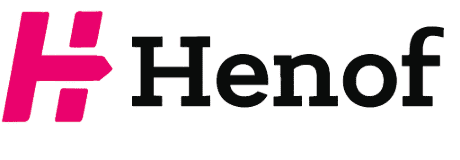When deciding between buy on finance or buy outright, it’s crucial to weigh the pros and cons to find what suits your needs best. Buying outright means full ownership with no ongoing payments, but it requires a larger upfront investment. On the other hand, financing can offer affordability with smaller payments, yet it often comes with interest and long-term commitments. Finance. Buying outright. Both can be useful buying options in many cases; however, it’s not necessarily easy to decide between them. In line with this thought, today, we’re looking at whether buy on finance or buy outright buying might be better for your needs.
It’s always worth double-checking there is no outstanding finance on your chosen vehicle before handing over any cash. Luckily, a car check tool offers a simple solution to this problem, allowing you to quickly check whether your chosen vehicle has any outstanding finance. In addition, this also allows you to see numerous other pieces of information, such as MOT history and mileage records, so you can make a more informed choice.
Table of Contents
Buy on Finance: Flexibility with Manageable Payments
Opting to buy on finance can provide flexibility, as it allows you to spread the cost over time rather than paying a large amount upfront. This option can make high-ticket items more accessible without straining your finances all at once. While you’ll need to consider interest rates and long-term costs, financing can be a smart choice if you prefer keeping more cash available for other expenses or investments.
Buy Outright: Full Ownership with No Ongoing Commitments
Buying outright offers the advantage of immediate ownership with no ongoing payments or interest costs. This approach can save you money in the long run, as you avoid buy on finance charges and potential fees. If you have the funds available, paying upfront can be more cost-effective and provide a sense of financial freedom. Additionally, you won’t have any debt obligations, making it easier to manage your monthly budget.
The Benefits of Buying Outright
Buying outright. It’s got a wealth of significant benefits. Therein, it’s a good option to aspire to – if you can manage to do so.
Of course, the main benefit of buying outright is that you own the car in its entirety. You also won’t have to worry about the finance company charging exorbitant amounts of interest or constantly chasing for money. As such, buying outright is both cheaper and less stressful in many cases, making it a good option for many people to consider.
However, while buying outright is definitely handy, it’s worth keeping in mind that there’s one very significant issue with this. The cost. Indeed, when buying outright, you’ll need to fund the entire purchase yourself. This can naturally be expensive, so buying outright can require a lot more planning for many people.
Why People Buy on Finance
As we’ve already mentioned, the cost of buying outright is often prohibitive. This is where buy on finance plans can be a popular option for many people.
In contrast with buying outright, finance allows a little more freedom. With financed cars, you can place a deposit on the vehicle, and the remainder is paid off gradually over time. Most financed cars are set on a term of a couple of years.
The benefit to this is obvious: it spreads the cost. As such, if you don’t have enough to buy the car outright, you can still get your dream vehicle. Plus, this may allow you to afford a slightly more expensive car than you could have outright. However, the drawback is equally apparent: you’ll be tied to a finance term. During this period, you won’t be able to sell until you repay the car’s value. Moreover, you’ll also pay interest on your chosen vehicle. Thus, by the end, you’ll pay back a lot more than the car’s original value.
Always Double Check Your Car is Clear of Finance First
Now that we’ve clarified the benefits of both buying options, you’ll hopefully have worked out which is best for you. Similarly, other car sellers will also have made this decision, and they may well have taken out finance when buying. Now, there’s nothing wrong with buying a previously financed car. However, it’s important to keep in mind that only a paid-off financed car is sellable. As such, it’s crucial to carry out a history check before you purchase a car.
Conclusion
Ultimately, whether to buy on finance or outright depends on your financial situation and long-term goals. Outright purchases provide immediate ownership without interest, but financing spreads the cost, making it more manageable. Carefully assess your budget, future plans, and financial priorities to choose the option that aligns with your lifestyle and gives you the best value.

